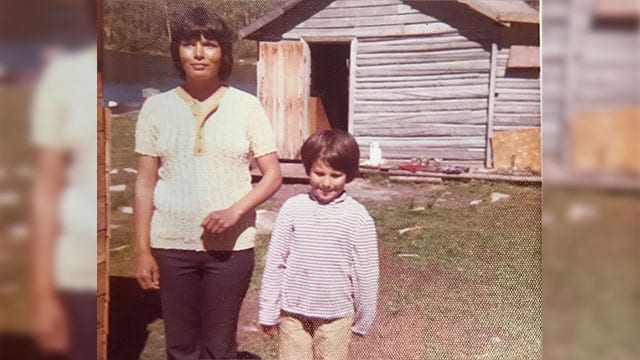
When 19-year-old Audrey Anderson was found dead in 1972, Sioux Lookout, Ont., police thought she’d been involved in a motor vehicle accident.
But now they aren’t so sure.
“There is a lack of clarity in our minds about the way that the death occurred,” said Dr. Dirk Huyer, chief coroner for Ontario.
“So I’ve reclassified the death from accidental to undetermined.”
That means police can reopen their investigation. And Det.-Insp. Gilles Depratto, of the Ontario Provincial Police (OPP), said they need help to fill in the blanks.
“We are appealing to the public for information in relation to what could have occurred if this wasn’t a traffic collision,” Depratto said alongside Huyer at a news conference in Sioux Lookout.
“The two male parties involved may have told friends, family or acquaintances additional information that may be crucial to determining what really occurred.”
The special tipline for the case is 1-807-738-5926.
Depratto said the men left Lee’s Café in downtown Sioux Lookout in a pick-up truck before Anderson’s body was found on the shoulder of Drayton Road at 1:30 a.m. on Oct. 11, 1972.
He declined to reveal the make, year and model of the truck. He also hesitated to declare the men, who were interviewed as part of the original accident investigation, potential suspects in the new probe.
“I’d rather not comment on that,” Depratto said, noting the men are still living in the community.
“If there is any information about the two individuals – any of the family members of those or friends of those individuals – then that information would be of great value,” added Huyer.
Huyer and Depratto were at the OPP detachment in Sioux Lookout with members of Anderson’s family.
“This was very difficult for the family,” her niece, Jolene Banning, said afterwards. “It was not long after they packed up and moved (away) to Thunder Bay.”
Huyer said the autopsy would have reported the same results today.
But photos from the scene didn’t age well so they have to rely on help from the public.
“The main purpose of this is to provide some information that we can look at these individuals differently than as part of a motor vehicle collision,” Depratto added.
Banning said questions persisted about what happened to Audrey, and in 2017 they contacted the Family Information Liaison Unit or FILU, which was established as part of the National Inquiry into Missing and Murdered Indigenous Women and Girls (MMIWG).
“My grandpa never stopped trying to find answers and going to the local police,” Banning said of Audrey’s dad who died in 2016.
Banning and others testified at the inquiry in Thunder Bay about Audrey’s case before FILU put them in touch with Depratto, who is the OPP’s liaison to the inquiry.
Depratto said he and Huyer have met with more than 20 MMIWG families that have questions about their loved ones’ cases.
“As a result of that … we’ve started re-looking at (three separate cases),” he said.
Banning said Audrey had several jobs and was known as a hard worker.
Her death shattered her family and haunted her parents
“Her and my grandpa split up. It was really rough,” Banning said. “I remember being a little kid and my grandma still crying about it.”









